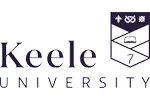

the United Kingdom
Keele University| The award | How you will study | Study duration | Course start | Domestic course fees | International course fees |
|---|---|---|---|---|---|
| BSc (Hons) | Full-time | 3 - 4 years | - | - | - |
Imagine being at the forefront of medical innovation, where you can help the human body heal and rebuild itself. Our Bioengineering (Regenerative Medicine) BSc combines cutting-edge science with real-world problem-solving. Working alongside our experts with access to state of the art laboratories, you will gain the transdisciplinary bioengineering know-how and practical skills to work on research, discovery and production of regenerative medicines.
Why study Bioengineering (Regenerative Medicine) at Keele University?
Course overview:
Our Bioengineering degree is an innovative programme that aims to develop aspiring bioengineers into a specialised workforce, that will respond to the future demands for regenerative therapeutic strategies.
The discipline integrates biochemical, molecular and cellular knowledge with engineering principles to design new types of advanced therapies to repair, replace and rejuvenate damaged or diseased tissues. In your first year of study you will gain a solid grounding in the core components of life, exploring cell biology, molecular science, and human anatomy.
Building on this knowledge, you'll explore more specialised topics like stem cell biology and tissue engineering. You'll learn how to work with biomaterials that can potentially rebuild damaged body parts and understand the complex world of molecular interactions.
Within your second and third year you can choose optional topics to tailor your experience to your own interests and career goals, for example homing biological theory in cell biology for regenerative medicine, cell signalling, studying current topics in regenerative medicine, cancer biology, precision medicine and nanomedicine.
To apply your learning, you will gain hands-on laboratory experience through sessions delivered in our state-of-the-art David Attenborough Laboratories, Central Science Laboratories and at the Guy Hilton Research Institute (at the Royal Stoke University Hospital Site).
In your final year you will examine biomedical engineering, concepts in good manufacturing processes, employability and communication skills, whilst undertaking an independent research project and choosing from a variety of optional modules that align with your career goals.
To enhance you employability you will have the opportunity to undertake a work placement year, study abroad for a semester or an international year of study. Shorter optional placement modules provide added flexibility for experiential learning alongside your studies in a range of industries and employer settings, including an education-focused optional module for those interested in a career in teaching.
For more details, please see the course page on the Keele website.
Below are some suggested courses at other providers that you may also be interested in:
Undergraduate Certificate in Mechanical Engineering UG:Certificate
Engineering Institute of Technology
Find out moreManagement (Theatre and Screen) BA (Hons)
The Liverpool Institute for Performing Arts (LIPA)
Find out moreData Science Bachelor of International Liberal Arts
International College of Liberal Arts (iCLA) at Yamanashi Gakuin University
Find out moreIf you do not meet the entry requirements for this course then consider one of these courses from another institution:
There are 276 other courses listed from Keele University. A selection of these are displayed below:
Join the StudyLink email list and never miss a chance to turn your study abroad dreams into reality!

Find out more about studying in the United Kingdom
As an international student you may require a valid visa to study at Keele University. Read more about the requirements in our Guide to the United Kingdom International Student Visa Requirements.